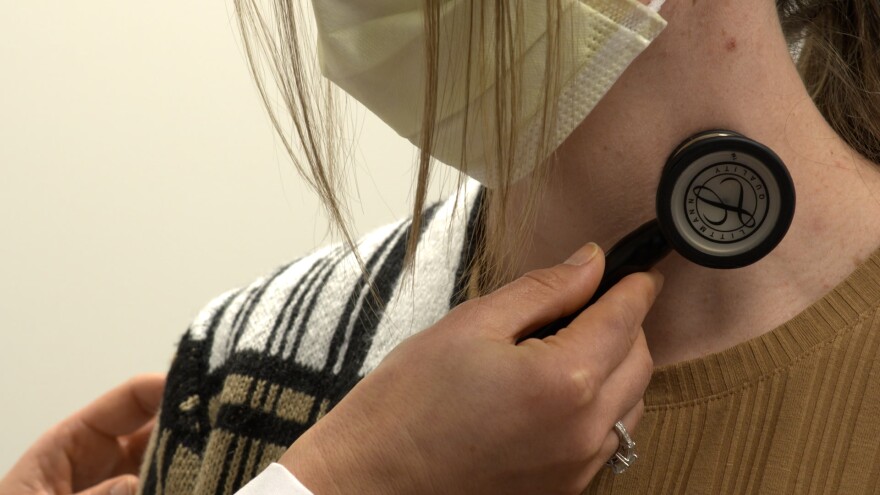ALLENTOWN, Pa. — As Heart Health month wraps up, a Lehigh Valley cardiologist is bringing awareness to a type of heart attack that occurs more often in women.
It’s called SCAD, which stands for Spontaneous Coronary Artery Dissection.
- SCAD stands for Spontaneous Coronary Artery Dissection
- This type of heart attack occurs most often in women ages 44 to 53
- Those who suffer SCAD don't have a high risk of heart attack
“It does happen in women that don't have any classic risk factors for atherosclerotic cardiovascular disease, we don't think of them as having a high risk of heart attack,” said Dr. Ellina Feiner, a cardiologist at Lehigh Valley Heart and Vascular Institute.
According to Feiner, the most common age for SCAD type of heart attack in women is 44 to 53, and 90% of all SCAD cases occur in women.
"SCAD is not preventable, but it is important to be aware of clinical symptoms because early recognition and early treatment can definitely improve survival and improve clinical course,” she said.
Feiner added that although it’s rare, a SCAD-type of heart attack is the most common heart attack that occurs around the time of pregnancy.
"We don't think of them as having a high risk of heart attack.”Dr. Ellina Feiner, a cardiologist at Lehigh Valley Heart and Vascular Institute.
"Most commonly if it does happen, it happens in the first week after delivery," she said. "But then if we look at the data, it is still extremely, extremely rare. So only three to eight cases out of 100,000 pregnancies are associated with a SCAD heart attack.”
Still, Feiner said it’s important to bring awareness to heart attack signs and symptoms because women are more likely to seek help for their significant other or family member, than for themselves.
"That awareness when we take care of ourselves, our loved ones, our sisters, our mothers, our daughters, it's just so important.” she said.
Symptoms of a heart attack can include nausea, chest tightness, shoulder tightness, tightness and squeezing across the chest wall and the back, and shortness of breath.
Heart attacks also can present with an episode of an irregular or dangerous rhythm or even a passing out spell.
The cardiologist said it's key for symptoms of a heart attack to always be taken seriously.


